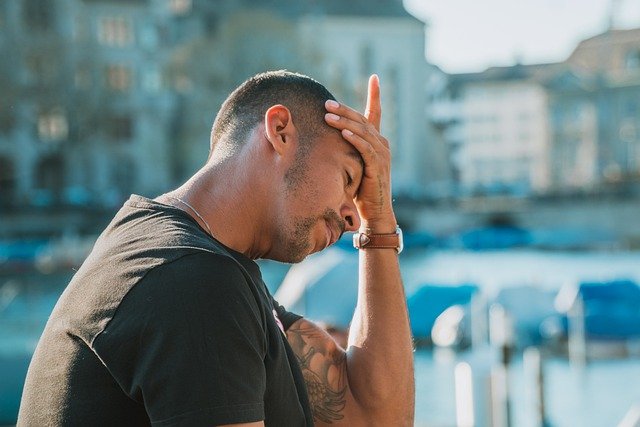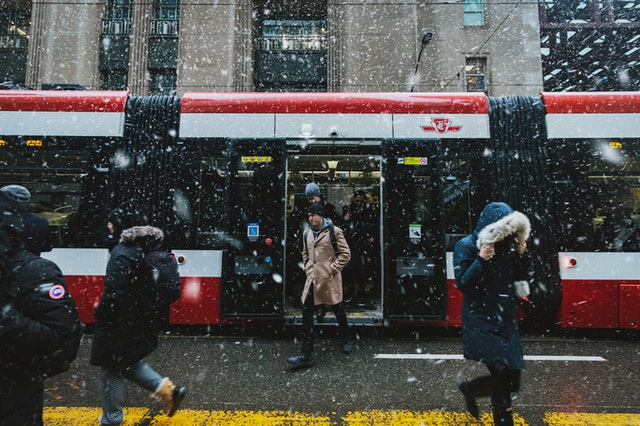Do Your Legs Feel Tired Most of the Time? It Could Be a Varicose Vein Symptom
If you often experience tired legs, you may not realize that they could be a symptom of varicose veins. Being on your feet all day can also lead to heaviness and fatigue in the lower extremities but when you have varicose veins, the discomfort can become chronic.
Varicose veins correlate with poor blood circulation which can result in a tired, heavy feeling in the legs.
Learn more about how varicose veins can affect how your legs feel and what you can do to alleviate the symptoms.
How Can Varicose Veins Lead to Tired Legs?
Varicose veins are one of the complications associated with vein disease. When you have varicose veins, the chronic swelling will eventually weaken the vein walls. This affects the ability of your veins to push blood back up toward the heart. Your veins are not circulating your blood properly, so blood begins to pool up in the legs. This leads to a feeling of heaviness in the legs and can make them feel especially tired in the evening or after you have been on your feet all day. If you have been sitting on the couch or at a desk for hours, your circulation will suffer and that can also exacerbate varicose vein symptoms.
What Else Can Cause Tired Legs?
When you are dealing with tired legs, it is not always due to varicose veins. There are other conditions that can lead to a feeling of heaviness in the legs. In some cases, you may have varicose veins in addition to some of the other health conditions that can make it feel like you are trudging through quicksand later in the day.
The following can also contribute to tired legs:
- Being female – Women are predisposed to leg fatigue.
- Obesity – Carrying excess weight on your frame puts additional pressure on your legs, so you are much more likely to feel tired if you are overweight or obese.
- Being older – Your veins weaken over time so as you get older, you may find that you experience poor circulation. Blood may pool in the legs more often, leading to a tired, heavy feeling.
- Being inactive – Although you may assume that inactivity should help your legs feel better since they are not undergoing physical exertion, lack of movement can contribute to leg fatigue. That is simply because your circulation becomes stagnant when you remain idle for long periods of time and the blood stays pooled in your lower extremities.
- Overexertion – On the other hand, overexerting yourself can also make your legs feel tired and achy. Anyone who works on their feet all day or has spent a day at an amusement park knows this feeling all too well. While physical activity is an important component of vein health, it is also necessary to practice moderation to prevent overdoing it.
What Can You Do to Relieve Tired Legs?
Regardless of the cause, many of the solutions for relieving tired legs will be the same. The main causes of leg fatigue stem from increased pressure on the leg veins and lack of proper blood circulation. To treat and prevent tired legs, the focus will be on alleviating pressure and improving circulation.
Some home treatments you can try to prevent or relieve leg fatigue include:
- Exercise daily – If your leg fatigue is not caused by overexertion, some low-impact exercise could be just what you need to perk up your circulation. Going for a short walk or doing some stretches can be enough when your legs are feeling like lead.
- Elevate your legs – This is one of the fastest ways to find relief from tired, heavy legs. It can be as simple as propping your legs up on a pillow while you’re working at your desk, while sitting on the couch, or when sleeping. You can even try the legs-up-the-wall yoga pose where you place a folded blanket or pillow in front of a wall to prop up your hips, then place your legs up against the wall. You will feel the heaviness drain from your legs rather quickly. This pose can be very relaxing and for additional comfort, you can place a pillow under your head.
- Take a warm bath – A soothing evening routine that can ease the pressure on your legs is taking a warm bath. Adding one to two cups of Epsom salt can help relieve achiness as well. Be mindful that the water is not too hot though, because that can cause more swelling in the leg veins.
- Wear compression sock or stockings – Compression hosiery is designed to apply firm pressure from the ankles up to the knees. This compression encourages blood to flow back up to the heart rather than pooling in the lower extremities. If you are going to be on your feet a lot, compression socks can help prevent the usual achiness and fatigue you may feel at the end of the day. Keep in mind that compression is meant for daytime use only and should not be worn while sleeping.
- Get a massage – You can get a professional massage or massage your legs at home with an ointment designed for achy muscles or even your favorite body lotion. Massage will help encourage circulation and relaxation of the muscles in your legs. If you go for a professional massage, inform the therapist about your leg fatigue and varicose veins, if applicable.
- Try dry brushing – This skin care technique is performed using a specially designed brush to brush over the surface of your skin in the direction of your heart. It is known to help improve circulation and exfoliate the skin. Dry brushing can be helpful for preventing tired legs and improving poor circulation that is associated with vein disease. However, if you already have varicose veins, you should be cautious with dry brushing. Be extremely gentle to avoid making them worse.
If you find that your chronic leg fatigue is due to varicose veins, you should make some of the above lifestyle changes to see if they provide adequate relief. If your tired legs continue to interfere with your quality of life, you may want to talk to your doctor about having your varicose veins treated. For some people, this may be the only way to find long-term relief from tired, heavy legs.
Summary
Now you know how varicose veins can cause your legs to feel tired often. Awareness of the symptoms of varicose veins and what makes you more susceptible to them can help you make the changes you need to promote the health of your veins. As much as home treatments can help alleviate the symptoms of varicose veins, they are not likely to eliminate the veins. Leaving varicose veins untreated can lead to future complications, so it’s important to address them.
While a healthy diet and lifestyle are extremely helpful for decreasing the appearance of varicose veins, it’s important to seek out professional care if the problem persists. If you’re experiencing symptoms from varicose veins that don’t respond to diet and lifestyle changes, contact us today to book an appointment.





